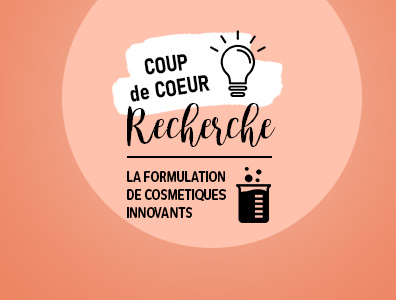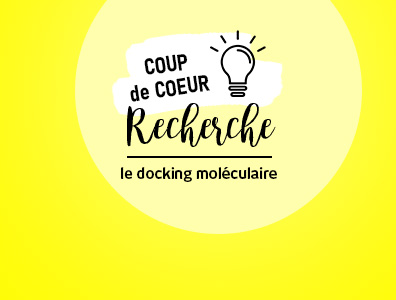
Coup de cœur RESEARCH
Spotlight on the formulation of innovative cosmetics
As a mass market, the cosmetics sector continues to be driven by innovation, both in terms of packaging and distribution channels, and in terms of the ingredients they contain. Between new consumer expectations (transparency, naturalness, personalization, respect for the environment, source of FEBEA), regulatory developments such as REACH or CSAR, and blacklists published by consumer associations, the search for new ingredients is more than ever a strategic challenge for the sector. Industrial players will have to adapt their production and extraction processeswith ever-increasing industrialization constraints. Indeed, if they are lucky enough to identify a highly innovative new ingredient, they are very quickly confronted with the reality of its interactions and compatibility with other ingredients, its precise conditions of use in formulation, and the necessary adaptations to production processes. This is a very dynamic field of research in which the EBInnov® research unit is developing its expertise.
The EBInnov® laboratory has formulation and physico-chemical characterization platforms that enable us to study the compatibilities between raw materials and develop orientation formulation frames. In addition, sensory panels are used to characterize ingredients and formulas according to color, smell and texture, in order to measure the acceptability of new formulas to consumers. Finally, the process platform offers the possibility of preparing for industrialization by carrying out pilot tests and studying the critical parameters of the blending process in relation to the quality indicators of the formula developed.
On all these formulation topics, the EBInnov® team develops research partnerships with manufacturers to provide operational solutions.
Here are a few examples:
- Characterizing conditions of use : an example with dextrin palmitate, a natural raw material imported from Asia known for its emulsifying and anti-agglomerating properties. Much more than a simple thickening agent, dextrin palmitate can be used to structure complex solid formulas for water-free cleansing. On this basis, two innovative galenic formulations were developed: a gel and a solid shampoo. Details of this work can be found in thearticle published in the trade magazine Personal care.
- Process improvement : one of our studies aims to optimize surfactant solubilization in order to reduce foaming and mixing time, both of which consume a lot of energy.
- Substitution of natural raw materials for conventional ingredients to increase naturalness indexes: projects focus on the contribution of process parameters to formula stability.
Find out more: Dr Marc Lavarde & Dr Rabah Azouani HDR











